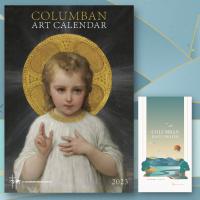
WIN group at Government House.
In 1999 a small group of women from different faiths attended a larger gathering held in Sydney hosted by the Australian Catholic Bishops' Conference to celebrate 2000 years of Christianity. At the end of the day of hospitality and sharing, Aziza Abdel Halim (Muslim) and Josie Lacy (Jewish) exclaimed, "We can't let this moment pass!" and the Women's Interfaith Network (WIN) was born.
After about 18 months of careful planning and growth, WIN had its official launch in the NSW Parliament House, an event reported in The Australian of 23 March 2001. By taking this initiative, Australian women can be seen to have anticipated many other similar women's projects worldwide, which followed as a response to the coordinated terrorist attacks of 11 September 2001.
More groups of WIN were formed over the years in different parts of Australia. Today, for more than 20 years, women in Australia from Aboriginal, Baha'i, Brahma Kumaris, Buddhist, Christian, Hindu, Jewish, Muslim, Sikh and Zoroastrian faith communities have been coming together to learn, understand and respect each other's faith. This and other interfaith activity has come to be seen as very much a part of everyday life in Australia.
Women's marginalisation within and outside religious structures often functions as the driving force for the creation of female interfaith initiatives. Some features of women's interfaith groups, which differ from many of the male-dominated "top-down" groups in the public forum, are that they often work at the grass-roots level, building relationships and engaging in community-based activism. They take the form of a "bottom-up" approach, involving representatives of civil society and taking the needs of local communities into account.
Some religious leaders are fearful that interfaith involvement will confuse or weaken their communities, but the opposite has been found to be the reality. As a Christian, my interactions with women of other faiths in WIN and elsewhere has made me more aware of the "treasures" of my own faith as well as those of other religions. Although Jewish and Islamic witness is first and foremost to a transcendent God, the Christian belief that God, in Jesus, embraced human form and entered fully into the human condition shows us that God takes the world and human life seriously. I see the Christian insight as being complementary rather than contradictory, and both have something important to teach us.
However, although women often have strong and active networks among themselves, they are often marginalised, excluded, and ignored in official roles and public forums. Three main common topics of concern to interfaith initiatives about equality for women are (1) women's and general human rights, (2) the prevention of violence against women and girls, and (3) promoting women's leadership in general and within religious traditions.[i] More than ever, women of all faiths are saying, "We can't let this moment pass!"
[i] Asja Saf, Female Interfaith Initiatives: Empowering Women, Facilitating Peace: Exploring female interfaith initiatives' untapped potential for creating a 'culture of peace' (University of Cyprus, Global Campus Europe, 2019).
Related links
- Read more from the current Columban Interfaith eBulletin - March 2022


